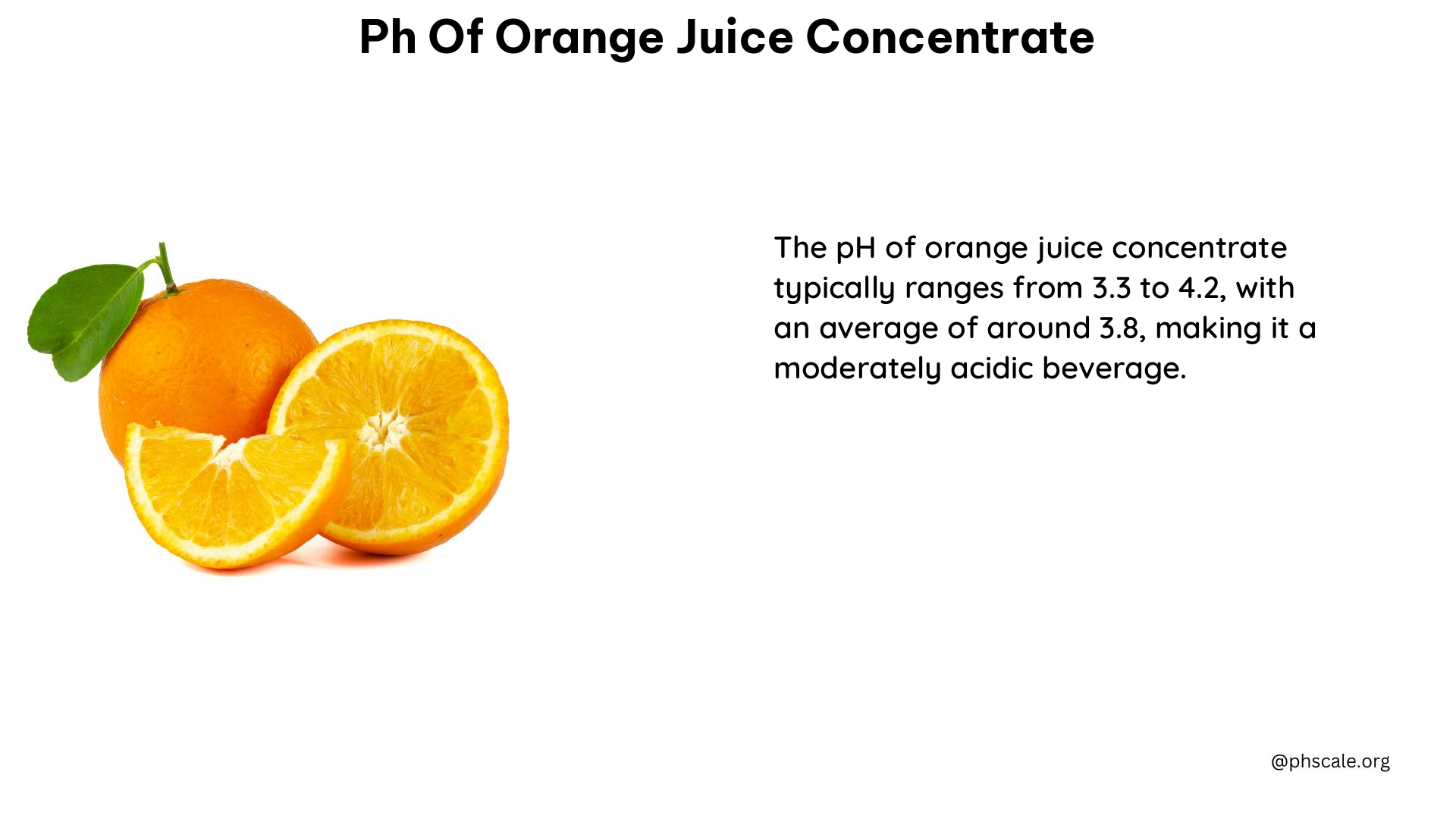The pH of orange juice concentrate is a crucial factor in ensuring the quality and stability of this popular beverage ingredient. Typically, the pH range for orange juice concentrate falls between 2.40 and 4.40, a range that is essential for preserving the natural flavor, aroma, and overall integrity of the product.
Measuring the pH of Orange Juice Concentrate
Determining the pH of orange juice concentrate can be done using a pH electrode or by titrating the juice with a base, such as sodium hydroxide (NaOH), until a specific pH, usually 8.1 or 8.2, is reached.
Factors Affecting the pH of Orange Juice Concentrate

Several factors can influence the pH of orange juice concentrate, including:
- Orange Variety: The type of orange used in the production of the concentrate can affect its pH.
- Concentration Method: The process of concentrating the orange juice can impact the pH.
- Hydrocolloid Additives: Substances like pectin, xanthan, and carboxymethyl cellulose (CMC) can be added to improve the physical and chemical properties of the concentrate, but their impact on pH must be carefully controlled.
Balancing the pH of Orange Juice Concentrate
To maintain the desired pH range, manufacturers can adjust the concentration of hydrocolloids, control the mixing temperature, and ensure proper storage conditions. For example, adding pectin and xanthan at specific concentrations and mixing temperatures can help achieve the target pH and improve the overall stability of the concentrate.
DIY and Home Remedies for Orange Juice Concentrate
For DIY users, it is crucial to follow proper handling and storage procedures to maintain the quality of the orange juice concentrate. This includes storing the concentrate in airtight containers, keeping it frozen or refrigerated, and reconstituting it with the correct amount of water to achieve the desired pH and flavor.
The History of Orange Juice Concentrate
Orange juice concentrate has been used for decades as a convenient and cost-effective way to produce orange juice. The process of concentrating orange juice involves evaporating the water content, resulting in a product that can be easily stored and transported. The concentrate is then reconstituted with water to create the final product.
Recommended pH Range for Consumption
The recommended pH range for orange juice concentrate is between 2.40 and 4.40. Consuming the concentrate within this pH range ensures that it remains stable and maintains its natural flavor and aroma.
Solutions and Alternatives
For users who prefer a more natural or organic approach, there are alternative orange juice concentrates available that are made without added preservatives or artificial flavorings. These products may have a slightly different pH range due to the use of natural ingredients and different manufacturing processes.
References
- Greenwood Associates. (n.d.). Orange Juice Concentrate 60 Brix (ORJC60F-0001-DR00) in Drums. Retrieved from https://www.greenwoodassociates.com/products/orange-juice-concentrate-60-brix-orjc60f-0001-dr00-in-drums-2
- Mohammadi, M., Mahdavi-Yekta, M., Reihani, S. F. S., Khorshidian, N., Habibi, M., & Mousavi Khaneghah, A. (2024). Assessment of Physicochemical Properties of Orange Juice Concentrate Formulated with Pectin, Xanthan, and CMC Hydrocolloids. Journal of Food Science and Technology, 61(2), 532–541. doi: 10.1007/s13394-023-01634-4
- Tetra Pak. (n.d.). Orange Juice Quality and Categories. Retrieved from https://orangebook.tetrapak.com/chapter/orange-juice-quality-and-categories
- Ventura Coastal, LLC. (n.d.). Safety Data Sheet – Cara-Cara Concentrate. Retrieved from https://venturacoastal.com/cara-cara-concentrate-safety.
